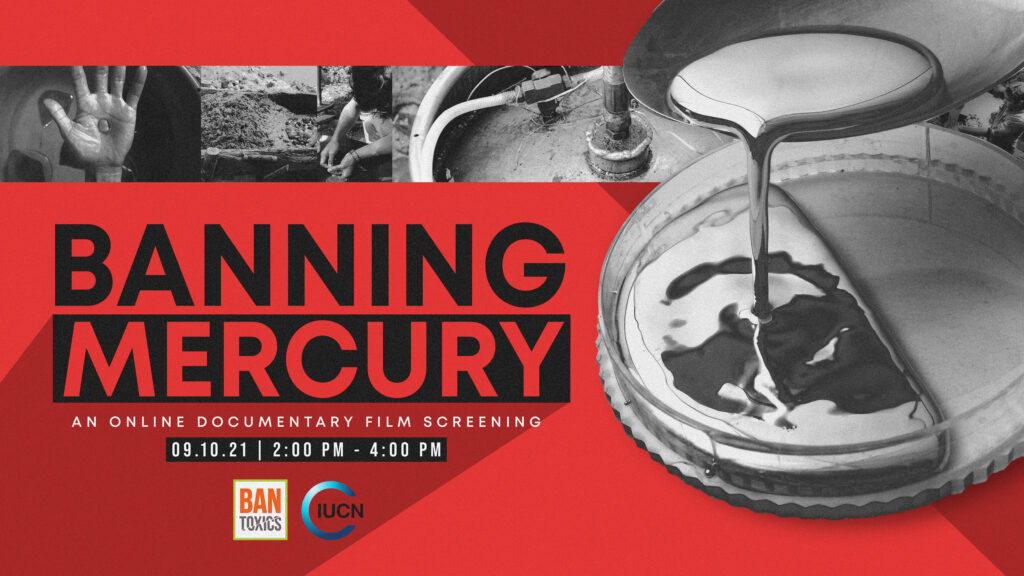PRESS RELEASE
September 15, 2021
BAN Toxics holds online premiere for documentary film ‘Banning Mercury’
By Jhian Christian Aranas
September 15, 2021—Environmental watchdog BAN Toxics conducted a virtual documentary film screening titled “BANNING MERCURY” as part of their continuous campaign on the elimination of mercury use in artisanal and small-scale gold mining (ASGM) communities.
The documentary film highlighted the mercury flows in ASGM communities, risks posed by mercury exposure to human health and the environment, as well as government practices involved in the management of the chemical.
“Many are not familiar with ASGM being the main anthropogenic source of mercury emissions globally due to the sector’s informality,” BAN Toxics’ Executive Director Reynaldo San Juan said.
“We want more people to know that there is danger in mercury use. Through this documentary film, we aimed to spread more awareness regarding the risks mercury exposure can bring to our health and the environment,” he added.
BAN Toxics a lead-collaborator environmental NGO who has been working with the artisanal and small-scale gold mining sector. The organization’s activities focus on sound chemicals and wastes management, helping the formalization of the artisanal and small-scale gold mining (ASGM) sector improve working conditions, transition miners to mercury-free technology, and eliminate child labor and gender inequity.
The event was also joined by Banning Mercury Director RJ Mabilin, along with the Executive Producers Arlene Honrade and Jam Lorenzo, both from BAN Toxics, who accommodated questions from the participants during a short forum right after the film screening.
In an interview, Mabilin said the production of Banning Mercury brought to light the persisting social and economic context of artisanal and small-scale gold mining that needs to be seriously and holistically addressed in the course of building a mercury-free environment for the country.
“While attempting to focus on the health and environmental impact of mercury use, we are more confronted by complex socio-economic relations and processes asking for solutions beyond regulatory control,” he explained.
“There is insufficient, if not complete lack of effort to provide and support mercury-free alternatives as the government cracks down on the mercury-dependent artisanal and small-scale gold mining, a sector that is mainly composed of subsistence miners,” Mabilin added.
The 30-minute documentary was produced in partnership with the International Union for Conservation of Nature Netherlands, National Committee of the Netherlands (IUCN NL), a global authority on the status of the natural world and the measures needed to safeguard it.
Last July 8, 2020, Minamata Convention on Mercury was ratified in the Philippines which purpose is to protect human health and the environment from the harmful effects of mercury emissions and mercury compounds. The convention’s provisions relate to the entire life cycle of mercury including the regulation of mercury use in informal artisanal and small-scale gold mining (ASMG).
“BAN Toxics’ fight for the formalization of the ASGM sector does not stop here. We need to help the miners transition to mercury-free alternative technologies to protect their health and the environment from the harmful effects of mercury.” San Juan said.
###
Jhian Christian Aranas is a communication assistant at BAN Toxics, and currently a senior journalism student at the University of the Philippines, Diliman. Aside from writing, he also specializes in multimedia and graphic designing.
For more information, please contact:
Melendre Heidyl Dela Torre, Communications Officer at BAN Toxics
melendre@bantoxics.org | +63 917 514 2956
